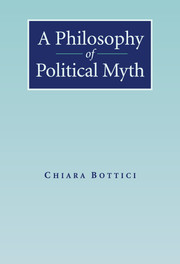IV - MYTH AND POLITICAL IDENTITY
Published online by Cambridge University Press: 24 July 2009
Summary
Political myths are narratives that coagulate and reproduce significance. They consist of the work on a common narrative by which the members of a social group or society represent and posit their experience and deeds. As such, they are an important part of what, following Castoriadis, can be called the social imaginary (Castoriadis 1987). Once political myths are defined in this way, the problem becomes one of analysing their relationship with other kinds of narratives that are also constitutive of the social imaginary.
In particular, both myths and historical writings are positional, in that they are told from the standpoint of the present. In other words, if the historian can also be defined as a “turned-back prophet” (Schlegel and Schlegel 1992: Frag. 80), in what ways does he or she differ from an ideal-typical myth-maker? Or, to put it in another way, in what ways do political myths and historical writings respectively contribute to present identities, or in what ways are the result of them?
These are the questions addressed in the following chapters. In particular, in Chapter 10 I discuss the relationship between historical and mythical writings, the extent to which they can possibly overlap, and also the reasons why they must be kept analytically distinct. By discussing various positions of the contemporary debate, I argue that only when historical narratives come to respond to a need for significance do they work as political myths.
- Type
- Chapter
- Information
- A Philosophy of Political Myth , pp. 201 - 202Publisher: Cambridge University PressPrint publication year: 2007

